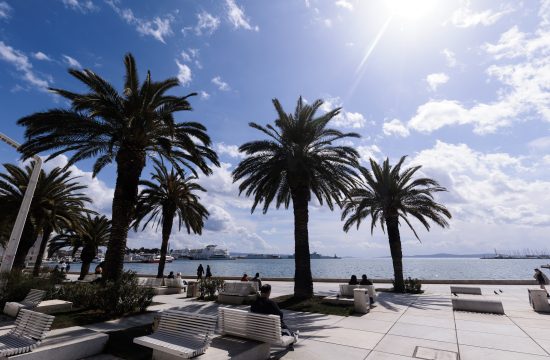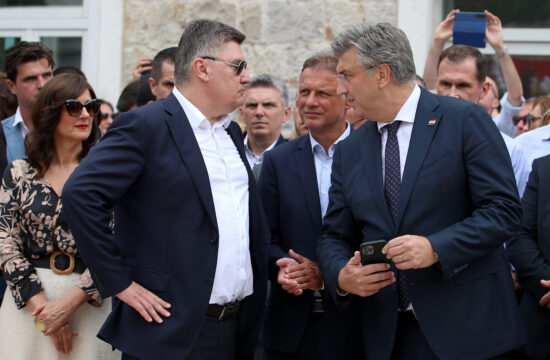
The Head of the EU Delegation and the EU Special Representative in Bosnia, Ambassador Johann Sattler, is visiting Srebrenica Wednesday where he opened the Srebrenica Memorial Centre's Archive Centre, and in addition to him, the delegation also includes Austrian Ambassador to BiH Ulrike Hartmann, German Ambassador Margret Webber, Slovak Ambassador Martin Kacho and Dutch Deputy Ambassador to BiH Noora Mina.
As part of the visit, the ambassadors visited the Srebrenica-Potocari genocide Memorial Center, where they laid flowers and paid tribute to the victims of genocide. After that, the Archive of the Memorial Center was ceremoniously opened, which was renewed with the funds of the European Union.
“A year ago, a pile of glass, bricks and building materials stood on this site. Today, one of the most modern archives of this type is here, which will be able to start functioning as a whole by the end of June. This will be the first time that we are able to offer researchers, students and ordinary visitors the opportunity to be educated and learn. Our goal is to inspire people who come here to do good where they live and this is one of the places that will allow us to do that. None of this would have happened had it not been for the personal decision, will and commitment of His Excellency Sattler. We will be forever grateful for this. The European Union, the Embassy of the Netherlands and the Embassy of the United Kingdom also took part in this project. These are European values at work,” said the director of the Srebrenica-Potocari Memorial Center, Emir Suljagic, after the official opening of the Archives.
Ambassador Sattler expressed his support for the work of the Srebrenica-Potocari Memorial Center.
“What happened here 26 years ago is unspeakable. One of the darkest chapters in the history of Europe. Some half a century after the Holocaust, Europe is once again witnessing unimaginable crimes, even though it was assured that such things would never happen again. Today, with my colleagues from Germany, Austria, Slovakia and the Netherlands, we stand here in front of you with our heads bowed, this shame we feel due to our own inability to prevent the terrible events in this area will be with us throughout our lives. Looking at the experience of others, it has been shown that the if dealing with the legacy of war, on the basis of truth and facts no matter how painful and tragic, it can be overcome in the direction of a better future for all,” said Ambassador Sattler. “As the EU, we have helped and continue to help societies and communities in the process of dealing with the past, in the process of healing.”
He also mentioned the deniers of the Srebrenica genocide saying they will always condemn such behaviour.
“Unfortunately, there are still many who deny that the crimes took place or deny the scale of the genocide that took place. We have continuously condemned and will always condemn such statements that are absolutely unacceptable for a country aspiring to become a member of the European Union. Ultimately, basic humanity is to respect and recognize the pain and suffering of the survivors,” said Sattler, who noted he would continue to support the Srebrenica-Potocari Memorial Center.
During their visit to Srebrenica, ambassadors will also meet with representatives of the municipal authorities, visit the premises of the Citizens’ Association “House of Good Tones Srebrenica” and hand over a donation, as well as visit the beneficiary of the EU4Agri project.




Kakvo je tvoje mišljenje o ovome?
Budi prvi koji će ostaviti komentar!